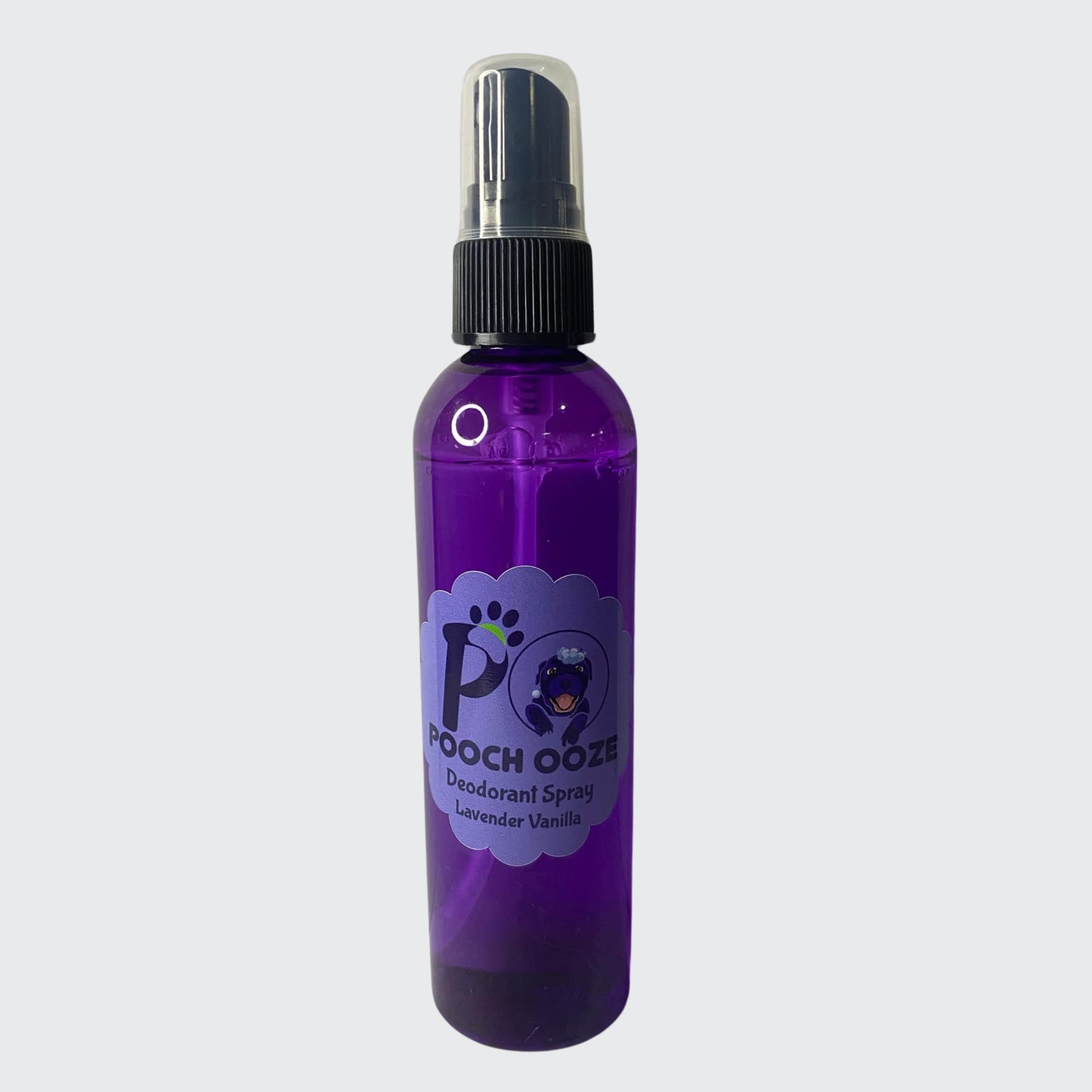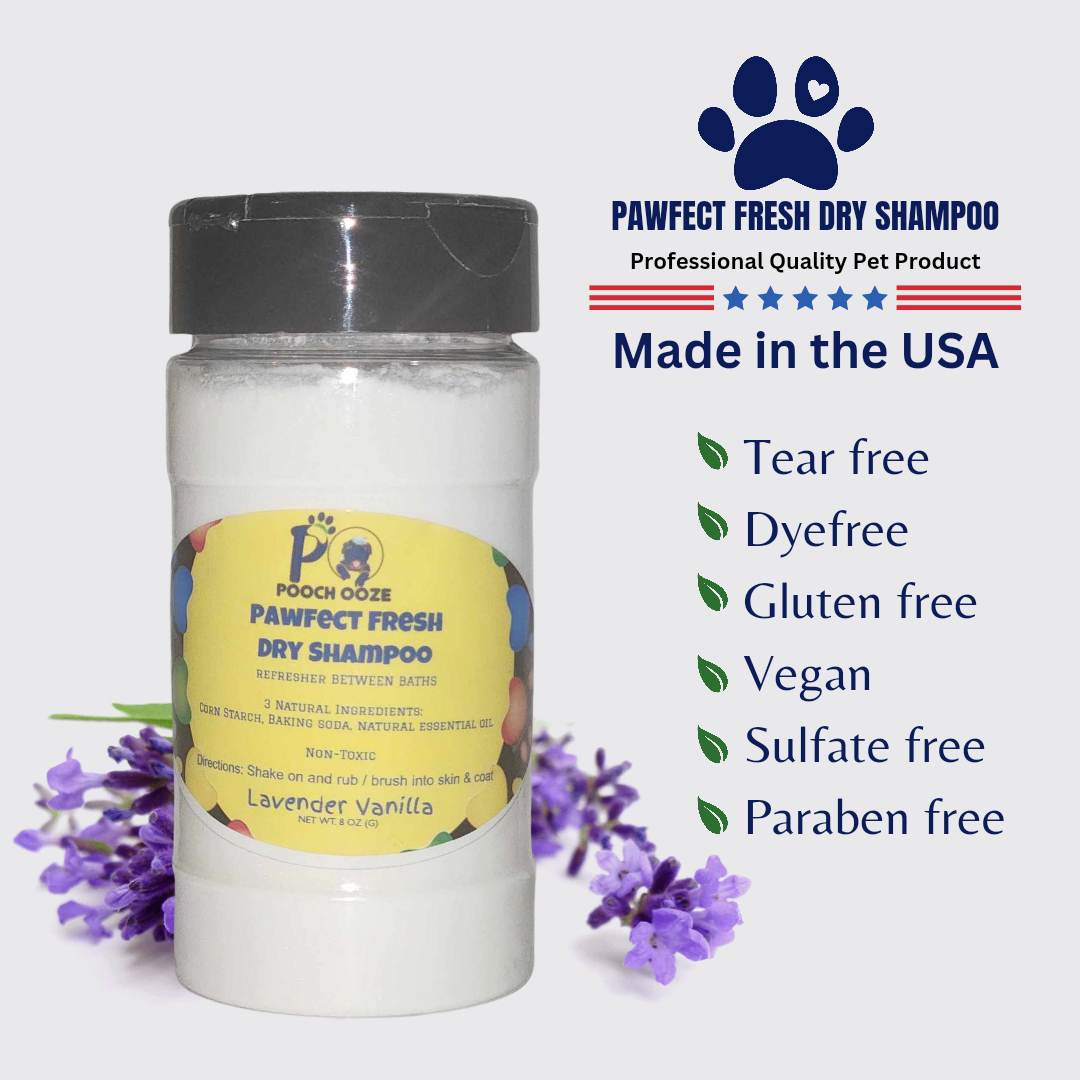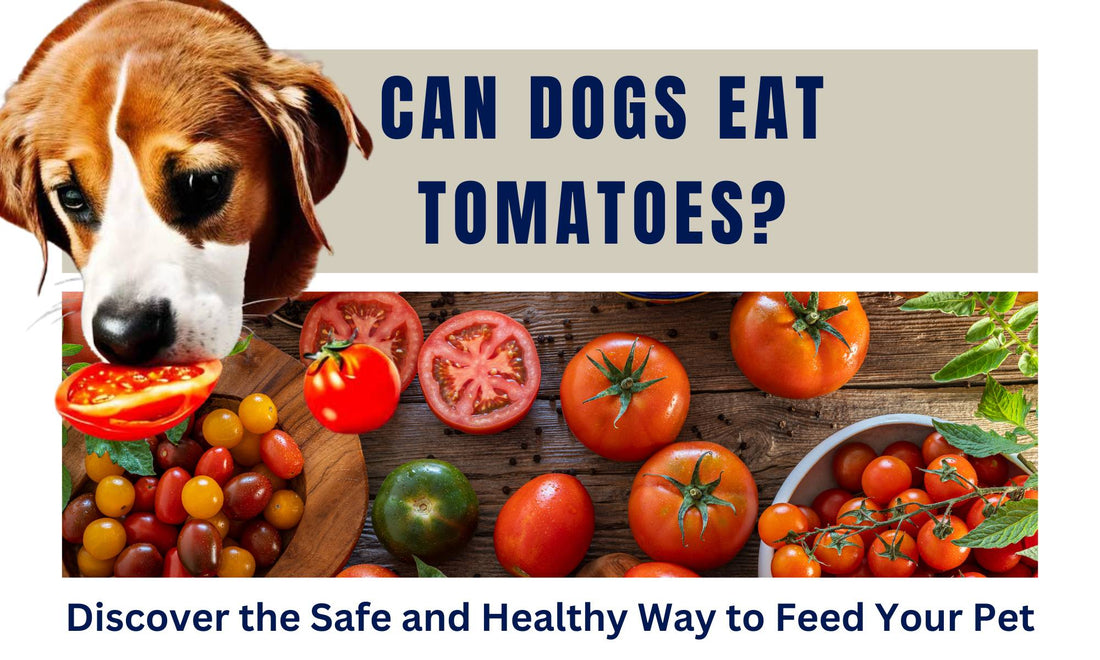Tomatoes are a widely used ingredient that adds flavor and nutrition to many of our meals. It’s no surprise that they're frequently incorporated into our daily diets, whether fresh in salads or cooked in sauces. However, what about the impact of tomatoes on dogs? Can we share this popular fruit with them?
The answer is yes; while you may have seen tomato-based foods advertised as part of dog food recipes, it's important to recognize that serving your furry friend raw tomatoes or canned varieties comes with some risk.
In response to this question posed by responsible owners everywhere: "Can dogs eat tomatoes?" — The animal care experts at Pooch Ooze have meticulously researched all angles associated with how safe and nutritious red-ripe fruits can be for pets when introduced into their diet charts.
If you’re eager to include these ruby-red treats into Fido's mealtime routine, let us lend you an informed hand! With guidance suited explicitly towards ensuring optimal pet health standards, this comprehensive guide will provide all necessary details surrounding quality choices based on canine needs first rather than solely focusing on human preferences alone related to if and when it makes sense choosing Lycopene-loaded snacks for those adorable waggy-tailed companions!
In this article, we will be covering all aspects related to dogs eating tomatoes, from discussing their various benefits and potential risks associated with them to sharing some best practices that one should keep in mind when feeding tomatoes to their pets.
So get ready—let's take a deep dive together and learn more about dogs' dietary needs concerning tomato consumption!

Can dogs eat tomatoes?
Are you thinking about adding tomatoes to your dog's diet? Before doing so, it's essential to know whether they're safe for dogs.
The short answer is yes; technically speaking, tomatoes are not harmful or toxic to dogs. However, there are some reasons why you should exercise caution when feeding them to your furry friend.
Firstly, ripe red tomatoes contain solanine and alpha-tomatine. These compounds can be harmful in large quantities and negatively affect the gastrointestinal tract of a dog.
In addition to that, tomato plants also have green parts like leaves and stems that hold higher levels of solanine than ripened fruit itself, which could have adverse effects on their health.
Another factor that must make one tread carefully while introducing new foods in a pet’s diet chart is its own individual dietary requirements, which are unique from ours as humans. Your pooch may have different digestive sensitivities based on breed, age, gender, and other habits, so consulting a vet before changing anything up with their food intake is always highly recommended, no matter how benign an ingredient might appear!
So if you’re still pondering over serving those juicy cherry-like fruits during snack time, then watch out! Avoid giving more than half of the small Roma types every now and then as part of well-balanced meals rather than making star performers out of random complex dishes focused only on them alone.
As responsible owners who want what’s best for our pets' overall health, make sure to always take notes from experts regarding nutritional guidance instead of going after peer pressure claims made online by others without particular expertise lest we miss something significant, ultimately ensuring everyone will stay happy AND healthy together!
Can puppies eat tomatoes?
If you're a puppy owner and have been contemplating introducing vegetables into your furry friend's diet, you may be wondering if tomatoes are safe for them to consume.
Well, the good news is that ripe red tomatoes are non-toxic, which means as long as they aren’t allergic, there’s no reason puppies cannot eat them in moderation. But do note that these tasty toppings don't add any significant nutritional benefits to their overall diet, like minerals or vitamins, so only use them responsibly.
As with most new foods added to your pup's eating regime, it would be prudent to always monitor allergies after initial introductions relatively strictly since even harmless-looking ingredients can trigger sudden, severe reactions at times due to each dog having specific metabolic necessities unique from each other regarding tolerances, digestions, etc.
To remain on the safe side while avoiding any potential harm, ensure that you never give unripe green ones under any circumstance! These immature fruits contain solanine and alpha-tomatine compounds at higher levels than found in mature tomato variants, which are readily absorbed and adversely impact puppy stomachs, resulting in symptoms of vomiting, diarrhea, and lethargy, among others, depending on individual sensitivity levels towards plant-based alkaloids.
As guardians striving toward prioritizing pet health above all, let us aim to give our pups healthy meals every day. When feeding treats, let's make sure we choose what aligns well with the strict dietary requirements intended best aligned with their breed, age, gender, body weight training outcomes, etc.
Are tomatoes poisonous for dogs?
Ripe tomatoes are non-toxic and acceptable for dogs to eat, so if you're wondering whether they're good for your pet, the answer is yes. It's crucial to keep in mind that green tomatoes include solanine and tomatine, two organic compounds that, if consumed in large doses, can be toxic to dogs. It's recommended to keep your dog away from the stems and leaves of tomatoes as well, just to be cautious.
Are Tomatoes Safe for Dogs?
It’s a popular belief that dogs can eat almost every type of food humans consume, but the fact is that some human foods are not beneficial and even harmful to them, so please take note.
One example is tomatoes. While it's possible for these furry animals to consume it as part of their overall nutrition, there are some essential facts you should know beforehand:
Tomatoes come from the same nightshade family as several fruits and vegetables such as peppers, potatoes, eggplants, etc., which all contain solanine alkaloids that slow down digestion, adversely leading to symptoms like vomiting or diarrhea in puppies and showing individual susceptibility levels mostly based upon body weight, age, gender, and other physical factors that a particular dog breed presents on the health front. Appropriate dietary charts are created in accordance with vet recommendations. Fully appreciated side-by-side, adopting only high-quality standards into your pet’s daily routines save everybody time, money, and frustration!
So what do we suggest when feeding tomato-based products? We recommend being cautious. Only serve ripe ones on rare occasions because introducing any new diet element slowly, steadily, and continually monitoring intake is essential; avoid giving small green unripe berries at all costs due to their always containing higher, more dangerous amounts of nutrients than regular, mature fruiting bodies!
Dogs can technically eat tomatoes under specific conditions. However, be careful not to go overboard by ensuring responsible usage is sensibly accounted for while taking care and always ensuring veterinary consultation is taken whenever necessary.
When are tomatoes bad for dogs?
It's important to be mindful of the impact of green tomatoes on your furry friend. The unripe, immature parts can potentially cause harm and lead to symptoms like stomach issues, tremors, seizures, and an irregular heartbeat. However, fully ripe tomatoes pose no hazards to dogs' health when they consume them in moderation.
If you notice any signs of discomfort or distress in your pet after eating a tomato (particularly green ones), it's best to contact your local veterinarian as soon as possible. Be proactive about keeping them from accessing these ingredients altogether if necessary—their safety should always come first!
Can I give my dog tomato sauce and soups?
It's crucial to know that tomato sauces and soups should be avoided if you're thinking about giving your dog any. The additions of sugar, salt, garlic, and onions that are frequently included in store-bought jars or canned tomato sauces and soups might be detrimental to your pet. It's ideal to continue feeding your dog only fresh, whole meals that are specially made to meet their nutritional requirements if you want to keep them safe and healthy.

Can dogs eat tinned tomatoes?
If you're wondering if your dog can eat canned or tinned tomatoes, the answer is no. The majority of these goods on the market include preservatives, an excessive quantity of salt that can cause dehydration, and additives like onions and garlic, which can be harmful to dogs if consumed. This same concept applies to tomato-based sauces and pastas; therefore, it's better to avoid giving them any form of comparable precooked products to maintain their general health and pleasure. Feed them entire foods prepared to satisfy their nutritional needs, with quality and freshness as the most important factors.

Nutritional Benefits of Tomatoes for Dogs
Although there are potential hazards linked to tomato consumption by dogs, it is still possible for them to reap nutritional benefits if fed with caution. Tomatoes carry essential vitamins A and C in addition to fiber and antioxidants that promote overall good health. They are currently also known as a calorie-low option worthy of being included in your dog's meal plan when served moderately, offering an excellent nutritive boost complementary towards maintaining their diverse and balanced diet requirements.
Best Practices for Feeding Tomatoes to Dogs
Incorporating tomatoes into your dog's diet can be done safely by following these best practices:
• Always ensure to remove tomato stems, leaves, and green parts due to their elevated solanine concentration, which is toxic for dogs.
• Thoroughly wash the tomato skin before feeding it to eradicate any traces of dirt or pesticides.
• Cut the tomato into small pieces, as this helps with digestion and reduces the chances of choking hazards.
• In the beginning, offer little amounts of tomatoes only. Monitor your dog for any signs indicating digestive complications or unforeseen reactions.
• Always consult with your vet before introducing tomatoes to your pup's diet on a regular basis, especially if they have never eaten them before.
How to Prevent Dogs from Ingesting Too Many Tomatoes
As a dog owner, you're always looking for ways to keep your furry friend safe and healthy. While feeding dogs tomatoes is generally considered safe, ingesting too many can result in digestive problems. In this blog post, we'll discuss some ways to prevent dogs from ingesting too many tomatoes.
1. Limit access: To make sure that your dog doesn't consume an excessive amount of tomatoes, keep them out of reach or give them limited access to the fruit. You could store them high up on shelves or in cabinets where they cannot reach and only give them a few pieces as treats rather than leaving a bowlful out all day.
2. Know What's Safe: Despite their benefits, such as their high fiber content and vitamin C, A, and K contents when fed occasionally with moderation, tomatoes contain solanine derivatives when excessively consumed, which can cause harm to dogs by causing gastrointestinal issues like diarrhea and vomiting, so it's essential to know just what constitutes an appropriate serving size for each particular breed.
3. Watch For Signs Of Complications: Pay attention if your pooch has been munching down more than its fair share because nausea and vomiting, along with tummy pain and gurgling, can potentially manifest within hours after ingestion, depending upon how sensitive one's canine friend might be towards consuming too much tomato.
4. Consider Alternative Treats: While most pets enjoy snacking on fruits, including tomatoes fresh off the vine, whether from home gardens or farmers' markets, You are highly advised not to encourage large quantities due to the risk of triggering potential health complications. Consider alternative snacks like apples without seeds that have no dangers behind their regular consumption.
Although tomatoes pose low risks with moderate feeding habits, implementation efforts should still increase when cautioning against possible side effects caused by the tomateine present therein. It's always better to be safe than sorry!
Risks and Precautions
As previously mentioned, excessive ingestion of tomatoes by dogs can be potentially harmful due to the solanine content present in them. Besides, some pets might have a higher sensitivity level towards tomatoes, and even small amounts could lead to digestive issues like diarrhea or vomiting. Hence, closely observing your dog's reaction when they consume tomato is vital, and discontinuing feeding it immediately if any unwanted side effects are found. In case you believe that your dog has consumed an excessive quantity of tomato or exhibits symptoms such as distress-seeking behavior, contact your vet at once for proper assistance and guidance.
Conclusion
In conclusion, although tomatoes are effectively edible to dogs, it is vital to exercise discretion and adhere to best practices for their safety. Tomatoes can offer nutritional advantages when consumed in moderation but also have probable dangers regarding solanine content if overindulged in.
Before introducing any new food item into your dog's meal plan, always seek advice from your veterinarian and observe them closely for any adverse reactions or symptoms that may develop as a result of tomato intake. By keeping these guidelines at the forefront, you will be able to make well-informed decisions about feeding tomatoes while ensuring the good health and happiness of your furry companion.



